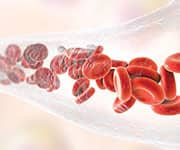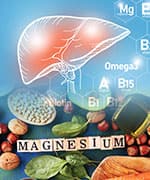Life Extension Magazine®
Whey Protein Improves Microvascular Function in Heart Failure Patients
Heart failure patients supplemented with whey protein showed improvement in systemic microvascular circulation, according to a report in the Brazilian Journal of Medical and Biological Research.*
A randomized, placebo-controlled trial included 25 participants, average age 66, who had New York Heart Association class I or II heart failure. Participants received whey protein or a placebo for 12 weeks.
“Our results suggested that dietary supplementation with whey protein improved microvascular endothelial function and possibly smooth muscle structure in patients with heart failure,” the authors concluded.
Editor’s Note: The endothelium is the lining of the body’s arteries, whose function may be impaired in cardiovascular diseases, thereby reducing the arteries’ ability to relax, which adversely affects circulation.
* Braz J Med Biol Res. 2021 Apr 19;54(6): e10577.
Greater Magnesium Intake Linked with Lower Liver Cancer Risk
Increased intake of magnesium has a protective effect against the risk of developing liver cancer, an article published in The American Journal of Clinical Nutrition reported.*
Researchers at Vanderbilt University Medical Center examined data from 536,359 participants in the National Institutes of Health-American Association of Retired Persons (NIH-AARP) Diet and Health Study cohort. Food-frequency questionnaire responses during 1995 to 1996 were analyzed for total magnesium intake from supplements and food. The subjects were followed through 2011.
Among those whose total magnesium intake was among the top 25% of participants, there was a 35% lower adjusted risk of developing liver cancer in comparison with participants whose intake was among the lowest 25%.
Editor’s Note: During the time of the study, 1,067 cases of liver cancer were diagnosed among the participants.
* Am J Clin Nutr. 2021 Mar 11;113(3): 630-638.
Time-Restricted Eating May Help Prevent and Manage Chronic Metabolic Disease
A form of intermittent fasting called time-restricted eating may have a role in the prevention of chronic metabolic diseases, according to an article in Endocrine Reviews.*
Time-restricted eating is a technique in which all daily calories are consumed within a period of eight to 10 hours or less. Maintaining a long overnight fast is one way to conceptualize time-restricted eating. Long fasting periods have been associated with reduced chronic disease risk.
Research suggests that adopting a short window of feeding daily helps support healthy circadian rhythms. Circadian rhythms dictate the activity of genes, hormones, and metabolism at different times during a 24-hour day. Aligning when we eat with the body’s internal clock optimizes health.
Editor’s Note: “Intermittent fasting can improve sleep and a person’s quality of life as well as reduce the risk of obesity, diabetes and heart disease,” said senior author Dr. Satchidananda Panda.
* Endocr Rev. 2021 Sep 22;bnab027.
B Vitamins Benefit Stroke Patients
A meta-analysis of randomized, controlled trials revealed lower combined risk of stroke, heart attack and vascular death, as well as a reduction in homocysteine levels, in stroke patients who received supplements containing B vitamins, compared to a placebo.*
Researchers selected eight trials that included a total of 8,513 stroke patients. Trials were limited to those that evaluated homocysteine levels and recurrence of stroke, recurrence of cardiovascular disorders, and vascular death (separately or combined) among participants who received a placebo or vitamin B6, vitamin B12 and folate.
Analysis of the trials’ results found a significant reduction in average homocysteine levels among B-vitamin-supplemented participants compared to those who received placebo. When the combined risks of heart attack, stroke and vascular death were examined, there was an 11% lower risk among participants who received the vitamins compared to the placebo.
Editor’s Note: Homocysteine is an amino acid formed in the body which, when elevated, is a risk factor for cardiovascular disease and numerous other conditions.
* Cureus. 2021 May 11;13(5):e14958.





